| Grantee | Mesoamerican Reef Fund ↗ |
| Grant Amount | $261,294 |
| Duration | Two Years |
Fisheries along the Mesoamerican Reef (MAR) support the livelihoods of millions of people across four countries: Mexico, Belize, Guatemala, and Honduras. But along this coastline, unrelenting fishing pressure has contributed to a drop in commercial fish biomass (909 g/100m2 in 2016 to 731 g/m2 in 2018) in sites surveyed by the Healthy Reefs Initiative (HRI), as registered in their 2020 Report Card. Fully-protected “fish replenishment zones” (no-take zones) with adequate management and enforcement, have proven to be successful, doubling commercial fish numbers over the past decade in those zones. In the 2018 Report Card, HRI compared the biomass of commercial fish between a marine protected area, a fish replenishment zone within a marine protected area, and an area without any protection. The results were very clear: biomass within the fish replenishment zone was ten times higher than the biomass within the protected area. There was little difference in commercial fish biomass between the protected area and the area without protection. Unfortunately, only 3% of the MAR is fully protected from fishing as “fish replenishment zones”.
Identifying healthy marine ecosystems is critical for fisheries and conservation; these sites serve as baseline monitoring sites; they help replenish adjacent areas and can be highly beneficial for local tourism and recreation. Healthy marine ecosystems, however, are rare given the increasing anthropogenic pressures. Nevertheless, in 2013, scientists discovered an extremely healthy reef straddling the maritime border between Guatemala and Belize, which likely includes Guatemala’s only multi-species fish spawning aggregation (FSA) site. Properly protected and managed, the “Cayman Crown” can help ensure biological connectivity and permanence of marine resources in the MAR.
Legal designation of this important reef has been achieved in both countries. They are each applying different strategies, but in both, this new reef is now protected as a no-take zone.
Project objectives are:
• Advance permanent legal protection and initial management regime for Cayman Crown in Guatemala and Belize;
• Establish a baseline for future monitoring of fish spawning aggregations in Cayman Crown; and,
• Strengthen sustainable finance for the Cayman Crown sites in Belize and Guatemala.
MAR Fund will provide sub grants to local NGOs, and contracts to local and international consultants for implementation, as required. This solid institutional framework provides fiscal and management oversight and non-profit (501 c 3) status, with the ability to solicit, receive, and manage donations from larger donors and for larger projects.





















